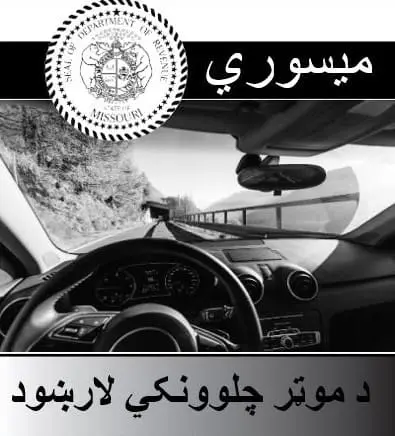For Immediate Release: March 14, 2022
Contact: Jason Baker, 314-541-4610, jason.baker@monarchstl.org
Missouri Driver Handbook Translated for Afghan Allies
St. Louis, MO. Bilingual International Assistant Services, a St. Louis-based 501(c)(3) nonprofit serving immigrants and refugees in Missouri, has released full Dari and Pashto translations of the Missouri Driver Handbook. The agency commissioned these translations to provide direct language resources in support of Operation Allies Welcome, the U.S. operation welcoming vulnerable Afghans to the United States. These documents are intended to assist new Afghan arrivals with learning for the Missouri Driver Permit Exam and help ease their transition into the Missouri workforce. These documents are free to download, reproduce, and share.
Executive Director Jason Baker, who previously led the agency’s Language Services Department, was already very familiar with the process of providing interpreters for the Driver Permit Exam:
Even if the road test is English-only, it’s great that the state lets applicants hire professional interpreters for the Permit Exam. But I was always troubled by the ethics of the applicants not having testing material to study in their native language. How do you take a multiple choice test that you can’t prepare for? You just guess and hope for the best. And road safety concerns aside, that’s fine, if you’re taking the test in English and can just come back the next day and try again for free. If you’re paying a state-approved interpretation agency out of pocket for each attempt, that constitutes a financial burden for recent arrivals with limited means.
Baker was working in a volunteer capacity with the father of a recently arrived Afghan family, who very much wanted to begin driving in order to widen his employment opportunities. In extensive online searches for study material in the family’s native Pashto, Baker was unable to find anything extant that was specific to Missouri. The father, who had driven supply convoy trucks in support of the U.S. mission in Afghanistan, secured a professional interpreter but still failed his first permit exam attempt.
After inquiring directly with the relevant state agencies about language access issues, the decision was made to move forward quickly with independent translations of the state driver handbook to help recent Afghan arrivals learn for the exam. Language Services Director Rebecca Niedner oversaw the contracting process and was able to leverage agency contracts to commission a cost-effective professional translation with the generous support of a charitable foundation. No taxpayer funds were used to produce the translations, nor did the State of Missouri or any of its agencies request, vet, or approve this work. Access to available services regardless of language ability or national origin is a key component of the agency’s mission, and agency leadership sees this translation effort as very much in line with this advocacy work.
In addition to providing language access through professional interpreters and translators, Bilingual International is seeing an increasing number of Afghan enrollments in its bilingual case management services, as recent arrivals seek to gain their footing in their new home. The agency has been working in direct coordination with area service providers, veteran groups, and volunteer initiatives to help meet local needs after the influx of evacuees from Kabul began arriving in St. Louis last Fall. The translated driver handbooks will now be distributed to interpretation agencies, immigrant/refugee service providers, sponsor circles, and will also be available publicly on the agency’s website [below] to download and disseminate. “Honestly, says Baker, “I don’t think dissemination is going to be an issue.
These translations are going to be shared all over the state and beyond through interpersonal networks. It’s a small gesture, but one that not many states are making. If we’re serious about welcoming Afghan Allies to Missouri, we need to start by identifying barriers on the ground and smoothing them out if at all possible. This is something relatively easy that we can do that will be just as valid in South City as it is in Kansas City, Joplin, St. Joseph, or Springfield.”
Download the translated handbooks below:



